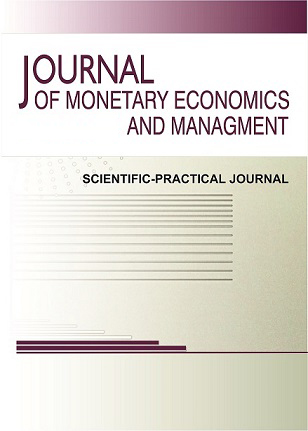graduate student
The purpose of the article is to demonstrate how the action learning method contributes to the formation and development of high-tech organizations, as well as to the creation and maintenance of flexible learning structures. The study employed a methodology of parallel comparison between the principles of practical learning and the characteristics of high-tech organizations. Research findings revealed that action learning not only shapes flexible structures and processes but also actively promotes the implementation of a continuous learning culture in high-tech companies. Furthermore, it plays a crucial role in developing leadership qualities, helping employees adapt to changes and effectively solve complex challenges. Action learning serves as a powerful tool for high-tech organizations, providing practitioners with ready-made models for building learning companies. This approach combines theory and practice, ensuring sustainable organizational development in a rapidly changing technological environment.
experiential learning, high-tech industry, flexible organization, learning organization, leadership, organizational development
1. .Arell, R., J. Coldewey, I. Gatt and J. Hesselberg (2012). "Characteristics of agile organizations." Agile Alliance.
2. Baker, T. (2017). Performance management for agile organizations: Overthrowing the eight management myths that hold businesses back, Springer.
3. Brophy, J. (2010). "Classroom management as socializing students into clearly articulated roles." The Journal of Classroom Interaction: 41-45.
4. Cho, Y. (2013). "What is Action Learning? Components, Types, Processes, Issues, and Research Agendas." Learning and Performance Quarterly 1.
5. Duwe, J. (2021). Ambidextrous leadership: How leaders unlock innovation through ambidexterity, Springer.
6. Ghezzi, A. and A. Cavallo (2020). "Agile business model innovation in digital entrepreneurship: Lean startup approaches." Journal of business research 110: 519-537.
7. Li, L. (2024). Organization Development Interventions on Chinese Language Learners: A Learning Community Perspective, Springer Nature.
8. Malecki, E. J. (1984). "High technology and local economic development." Journal of the American Planning Association 50(3): 262-269.
9. Marquardt, M. and D. Waddill (2004). "The power of learning in action learning: a conceptual analysis of how the five schools of adult learning theories are incorporated within the practice of action learning." Action learning: Research and practice 1(2): 185-202.
10. Netherland, b. s. "Action Learning at BSN." from https://bsnmba.org/action-learning-bsn/.
11. Palos, R. and V. Veres Stancovici (2016). "Learning in organization." The Learning Organization 23(1): 2-22.
12. Pedler, M. (2011). Action learning in practice, Gower Publishing, Ltd.
13. Peter , S. (2020). The essence of an organizatio House of transformation
14. Raelin, J. A. (2008). Work-based learning: Bridging knowledge and action in the workplace, John Wiley & Sons.
15. Rogoff, B., C. G. Turkanis and L. Bartlett (2001). Learning together: Children and adults in a school community, Oxford University Press.
16. Senge, P. (1990). The Fifth Disciplne: The Art and Practices of the Learning Organization (Doubleday/Currency), New York.
17. Sergiovanni, T. (1992). Moral leadership: Getting to the heart of school improvement Jossey, Bass Publishers.
18. Serrat, O. (2017). Knowledge solutions: Tools, methods, and approaches to drive organizational performance, Springer Nature.
19. Van der Meer-Kooistra, J. and R. W. Scapens (2008). "The governance of lateral relations between and within organisations." Management Accounting Research 19(4): 365-384.
20. Volz-Peacock, M., B. Carson and M. Marquardt (2016). "Action learning and leadership development." Advances in Developing Human Resources 18(3): 318-333.
21. Wells, G. (2000). "Dialogic inquiry: Towards a sociocultural practice and theory of education." Harvard Educational Review 70(2): 228-230.
22. Welskop, W. (2013). Action learning in education.
23. Whenham, T. (2021). "Benefits of Active Learning: Why Your College Should Try It." Education Blog NUREVA.
24. Yorks, L., J. O'Neil and V. J. Marsick (1999). "Action learning theoretical bases and varieties of practice." Advances in developing human resources 1(2): 1-18.









